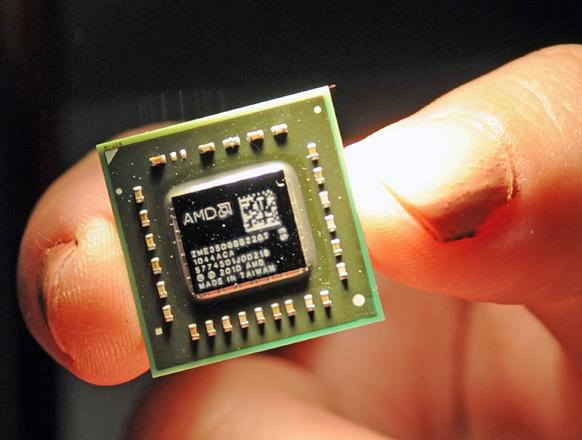- Mix
- Web-2020-10-28 | 03:02 pm

Nayrouz News Agency :
Advanced Micro Devices said on Tuesday it had struck a deal to buy computer chipmaking rival Xilinx in a $35 billion megadeal that consolidates the sector which is being transformed by the global pandemic.
The tie-up will help AMD ramp up its challenge to Intel for personal computer chips and broaden its portfolio to products for data centers, industrial systems and other sectors.
"The combination will create the industry’s leading high performance computing company, significantly expanding the breadth of AMD’s product portfolio and customer set across diverse growth markets where Xilinx is an established leader,” a statement said.
AMD revenue has climbed this year, with the COVID-19 pandemic fuelling demand for computers and video game consoles as people rely on the Internet to work, learn, and play more at home.
"Our acquisition of Xilinx marks the next leg in our journey to establish AMD as the industry’s high performance computing leader,” AMD Chief Executive Lisa Su said.
Under the agreement, Su will lead the combined company as CEO and Xilinx president and CEO Victor Peng, will join AMD as president responsible for the Xilinx business and strategic growth initiatives.
Xilinx, founded in 1984, is known for adaptive chip processing systems used in an array of industries including telecommunications, automotive and defence.
The deal follows another blockbuster tie acquisition by US-based Nvidia for British-based Arm, the dominant player in mobile chipmaking.
The combined AMD-Xilinx with create a company with an enterprise value of some $135 billion and 13,000 engineers.
California-based AMD separately reported its third quarter profit more than tripled from a year ago to $390 million as revenue grew 56 per cent to $2.8 billion.
The company saw growth in chips for computer gaming graphics applications and in its Ryzen chips for personal computers.
AMD said it sees ongoing momentum and growth in revenue of around 40 per cent for 2020.
The acquisition of Xilinx could bolster AMD as the industry seeks processors for new 5G technologies such as automated driving systems and for artificial intelligence for systems being developed by giants like Google, Amazon, Microsoft or Samsung for cloud computing and data centers.
The deal "is not coming out of weakness for AMD, it’s coming out of strength”, said Patrick Moorhead of Moor Insights and Strategy in a Six Five podcast.
The deal has been approved by boards of both firms and the companies expect regulatory approval sometime next year.
AMD shares slipped four per cent in premarket trade on the news while Xilinx rose 10 per cent.
-
 Will Trump end up like Kennedy?2026-02-03
Will Trump end up like Kennedy?2026-02-03








